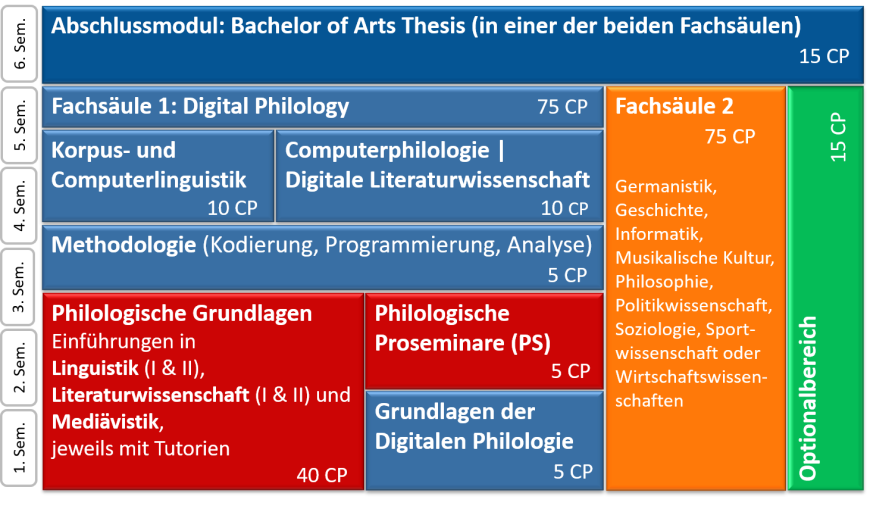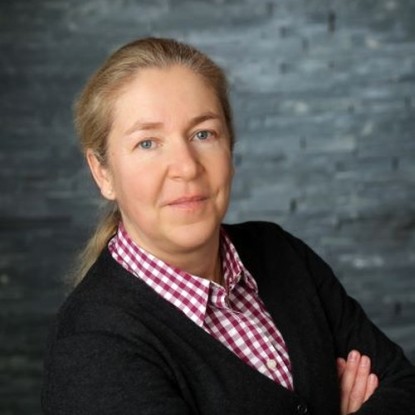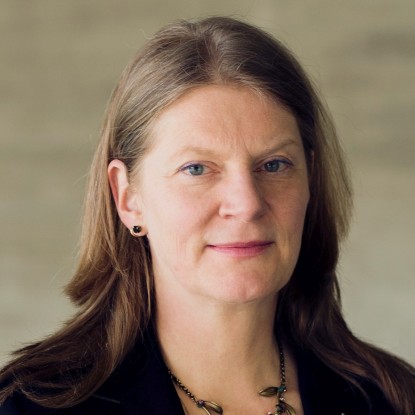The Joint Bachelor of Arts consists of two subject areas that are studied in parallel. The subject area Digital Philology can be combined with a range of subjects from the social and historical sciences – e.g. History, German Studies, Political Science, or Sociology. Alternatively, it is possible to choose topics from other subject areas, such as Computer Science, for example. The studies in the two subject areas are supplemented by courses from a so-called optional area, which – in addition to team and communication training – also covers aspects such as foreign language courses at the Language Center or lectures/courses from the university's general catalog. The optional area also allows the students to acquire skills beyond the scope of the respective subject area, in order to shape their competence profile by choosing relevant courses/lectures.
Topics
In the field of Digital Philology, within the framework of the Joint Bachelor of Arts, the students are not only able to learn the basics of Philology in the fields of Linguistics, Literature Studies, and Medieval Studies – but are also introduced to digital methods and procedures, and to their implications for modern philological research. They also gain insights into modern corpus and computer-based methods of Linguistics as well as Digital Literary Studies and Edition Philology.
The course of studies of Digital Philology is bilingual (German and English). Thus, the students have the opportunity to sharpen their language skills in both languages – generally and with regard to scientific language. Courses in academic writing contribute to this.
Structure of the course of studies
The course of studies consists of five subject areas. From the philological basics to the first subject-specific seminars and the basics of Digital Philology and corresponding methods, from in-depth compulsory and elective courses in Corpus- and Computational Linguistics and Digital Linguistics to Digital Literary Science and Computational Philology, the students are introduced to various aspects of Digital Philology and will learn to identify and apply the respective theories, methods, and procedures. The degree concludes with a Bachelor of Arts thesis in one of the two chosen subjects areas.
Additional information
Regulations for the degree course Joint Bachelor of Arts, subjects x and y (opens in new tab) (2019) (from page 119)
Module handbook Joint Bachelor of Arts in the subjects x and y (opens in new tab) (2019)
Equivalence table Joint Bachelor of Arts Digital Philology (opens in new tab) (2015 – 2019)
Regulations for the degree course Joint Bachelor of Arts, subjects x and y (opens in new tab) (2015) (from page 119)
Regulations for the degree Joint Bachelor of Arts, subjects Digital Philology and y (opens in new tab) (2015) (from page 227)
Module handbook Joint Bachelor of Arts in the subjects x and y (opens in new tab) (2015)






